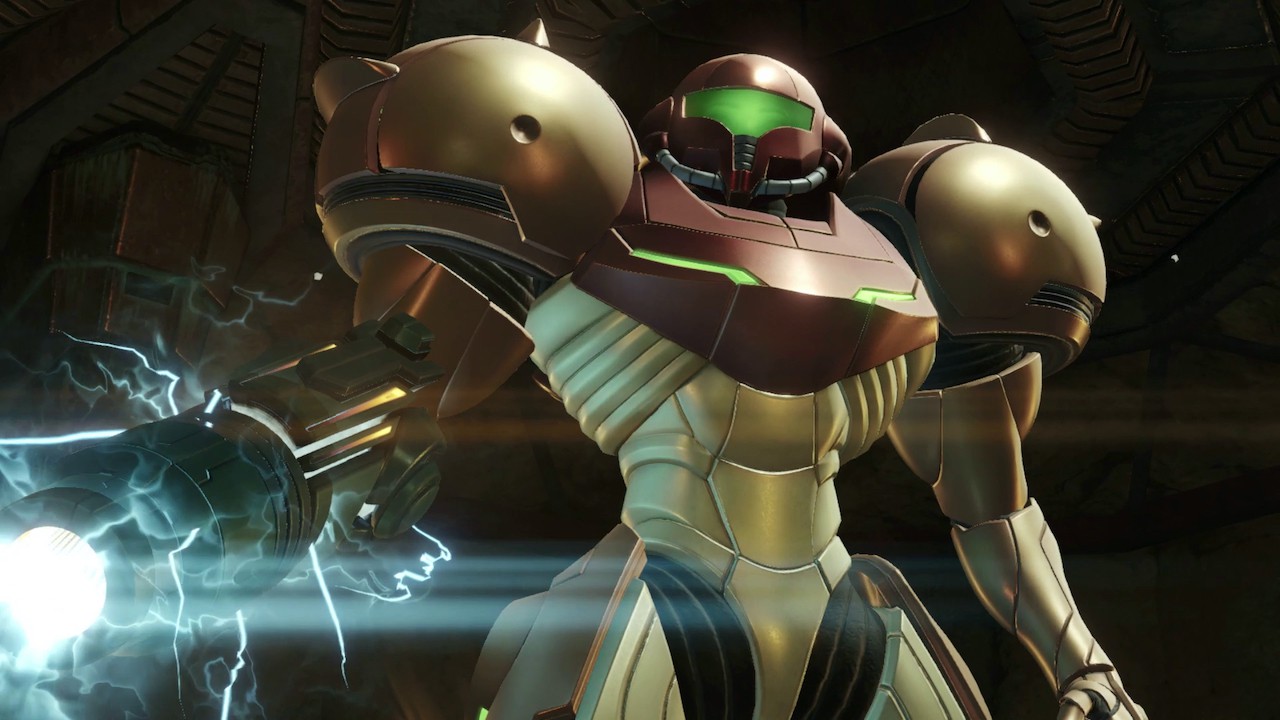Following Nintendo’s surprise release of Metroid Prime Remastered last week, one former member of Retro Studios, the developer of the game’s original and remastered versions, expressed dissatisfaction after learning that the original staff was not included in the game’s credits.
Zoid Kirsch, who served as a senior engineer on Metroid Prime while working at Retro Studios, posted a screenshot from the Metroid Prime Remastered credits, saying, “While many studios did amazing work on the remaster, I’m let down Metroid Prime’s Remaster does not include the full original game credits.”
Rather than display the individual names of all those who worked on the previous versions of the game, Metroid Prime Remastered’s credits just show the text: “Based on the work of Metroid Prime (Original NINTENDO GAMECUBE and Wii Versions) Development Staff.” Kirsch was unhappy with this approach, noting, “I worked with so many amazing people on the game and everyone’s name should be included in the remaster, not just a single card like this.”
For a game developer, having their name included in the credits is not only proof of their work on a title, but is also of great significance in terms of their career. But for remasters and remakes where the original staff has no direct involvement in development—as was the case here—things are a little different. That said, remasters and remakes couldn’t exist without the original games, so the opinion that all of the original staff should be listed is certainly reasonable.
So how did other remasters or remakes handle their credits? In the case of another Nintendo title, The Legend of Zelda: Skyward Sword HD, the credits included all members of the original staff at the beginning—a style that Kirsch was surely hoping for. Based on this, it’s probably safe to assume that Nintendo itself has no consistent policy when it comes to credits, and the style is left up to the developers themselves.
Sonic Colors: Ultimate, the remaster of Sega’s Sonic Colors, also included all of the original development staff (see the video above), so this isn’t particularly uncommon. Sonic Colors: Ultimate was developed by Blind Squirrel Games, and Weston Mitchell, a former technical artist at the studio, shared Kirsch’s opinion: “We did this on sonic colors but the credits ended up being 30 minutes long haha, but yes i agree.”
On the other hand, we have a game like Capcom’s Resident Evil 2 remake. This game only listed “Original Development Team” and the name of the original version’s director, Hideki Kamiya, under the Special Thanks section of its credits.
Square Enix’s Final Fantasy VIII Remastered also included only a simple “ALL FINAL FANTASY VIII DEVELOPMENT STAFF” credit, similar to what was done in Metroid Prime Remastered. It’s clear that this style is common in the industry, regardless of whether people think of it as an appropriate practice.
As an aside to that discussion, even a member of the development team that worked directly on Metroid Prime Remastered had some gripes with the credits of the game. Former environment artist for Retro Studios, Ashley Rochelle, pointed out that she was included in the Special Thanks section, saying, “all of these folks (except the recruiting company obvs) are people who left the company before the credits were made.”
While the Special Thanks section is a fixture of game credits, it does not give any indication of how each person contributed, and for some games, it even includes people who aren’t developers. Rochelle criticized the practice, saying that companies needed to stop doing it, and that people should be credited with their titles.
This is far from the first time that developers in the game industry have voiced discontent or frustration over not being included in credits. For example, several former members of MercurySteam, the developers of Metroid Dread, made it known that their names were not listed in the game’s credits (Vandal). It was explained that at the time, the studio had a policy where any staff who worked for less than 25% of the total development time were not included in the credits. It is believed that these former staff members were omitted because they did not meet this condition, but the policy itself came under scrutiny.
In the cases of Zoid Kirsch and Ashley Rochelle, it’s likely that they were not included in Metroid Prime Remastered’s credits due to not meeting whatever kind of criteria that Retro Studios has in place.
We don’t know whether or not Retro Studios could decide to amend the titles of former staff members or add the names of the original version staff into the credits of Metroid Prime Remastered at some point in the future, but it wouldn’t be something completely unheard of.
When it was first released, the credits for Pac-Man World Re-Pac, a remaster of the Bandai Namco title Pac-Man World: 20th Anniversary, did not include members of the original development studio, Namco Hometek. Scott Rodgers, former lead game designer at Namco Hometek, pointed this out, and Bandai Namco eventually released an update for the game that added in the names of the original staff members.
Rodgers’ complaint drew a lot of attention and was covered by the gaming media at the time. In addition, some gamers had rather critical opinions about Bandai Namco for its initial decision to exclude the original staff. It will be interesting to see whether a similar community push could encourage Retro Studios to make changes to the credits in Metroid Prime Remastered.
Written by. Marco Farinaccia based on the original Japanese article (original article’s publication date: 2023-02-13 11:49 JST)





